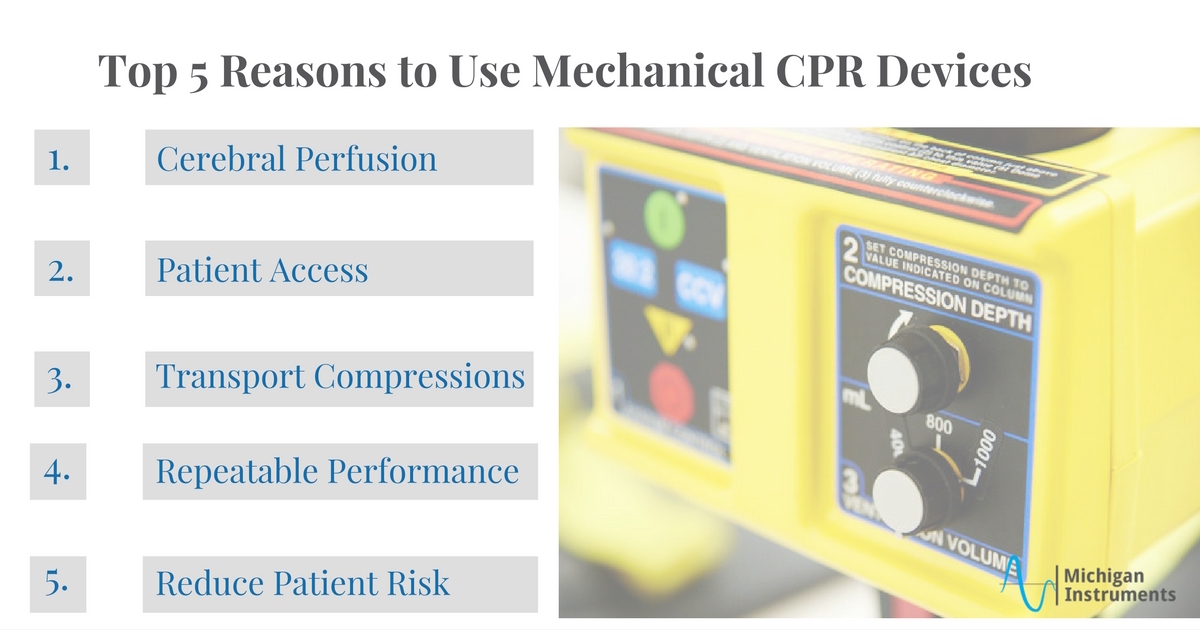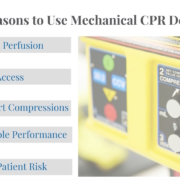
There is no question that CPR can be beneficial to your patient to continue compressions and blood flow through the body. Here we take a look at 5 uses for mechanical CPR devices specifically and how they can increase a patient’s chance of survival.
- Better Cerebral Perfusion. Per the AHA guidelines, consistent compressions are more important than the breaths provided to the patient during CPR. Mechanical CPR devices deliver consistent chest compressions to a depth and at a velocity that have been shown to provide improved blood flow to the patient’s brain.
- Better Access to the Patient. Mechanical CPR devices stay in place and make it easier for healthcare providers to work on other aspects of the patient’s care. No need to work around people providing chest compressions (and breaths). If necessary, Mechanical CPR can be paused and resumed with a push of a button, maintaining nearly complete access to the patient throughout the resuscitation effort.
- No Interruption of Compressions During Transport. Attempting to deliver consistent, high quality cardiac compressions via CPR in transport, whether in a stairway, in an ambulance, or through hospital hallways is extremely difficult, if not impossible. Mechanical CPR devices can be securely applied to the patient throughout transport, avoiding any interruptions in CPR.
- Repeatable Performance. In healthcare, professionals strive to deliver the best therapy in a repeatable way, leading to improved outcomes. Providing consistent, uninterrupted care during CPR, and knowing your patient is receiving optimal chest compressions while other issues and procedures are addressed, should provide that kind of confidence to all caregivers.
- Reduced Risk to Patient and Caregivers. Physical limitations and fatigue of a human CPR provider can negatively impact the quality of resuscitation efforts. Obviously, this can hurt the patient’s chances of survival. In addition, manual CPR, when done properly, puts great physical demand on the caregiver, putting them at risk of injury. Mechanical CPR can help to minimize these risks.
Learn more about our Life-Stat Mechanical CPR Machines and how they can help you deliver the highest quality care during treatment of cardiac arrest. Contact us today with any questions or to request a price quote.




